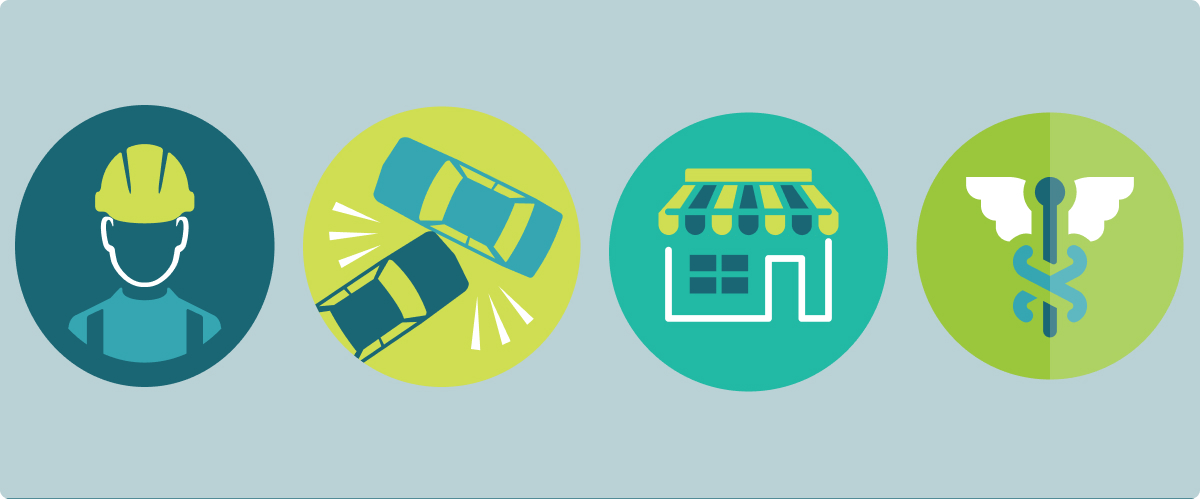It is not unusual for an injured worker to seek a return to work after taking time off to recuperate and rehabilitate. Before the worker is allowed to return to work, however, they are required to provide medical evidence which confirms they are fit to return to work and their usual duties.
Here’s what you need to know about returning to work after sustaining an injury in the workplace.
Return to work plan
Whilst away from work, an employer should keep in contact with the injured worker and provide any support they can. The worker may also get in touch with their employer if they have not heard from them – either way, it is important for both parties to stay in contact.
A return to work plan is something that is prepared between WorkCover Queensland, the injured worker, the employer, and the injured worker’s doctor. The plan is a written document that provides an overview of how all parties will work together to ensure a safe and quick return to work for the injured party.
Each plan is prepared uniquely and takes into account the individual factors of the case, including:
- the worker’s return-to-work goals
- the worker’s ongoing medical treatment
- the worker’s physical and psychological capacity to perform certain tasks and duties; and
- the types of tasks and duties the worker should avoid undertaking and when they may be able to commence undertaking those tasks and duties again (if ever).
A strong plan will include comprehensive details about the worker’s treatment plan, progress, and medical assessments at milestones laid out in the plan. It will also indicate the stages at which the worker is likely to be fit to return to work as recommended by their doctor.
Workcover Certificate of Capacity
A work capacity certificate is used to help WorkCover Queensland make decisions about workers’ compensation claims.
Only medical doctors, nurse practitioners (for minor injuries), or dentists (for oral injuries) who are registered with the Australian Health Practitioner Regulation Agency can issue a valid work capacity certificate.
An injured worker has the right to refuse to see a doctor that their employer has referred to them. Most injured workers will, in the first instance, receive advice from their usual General Practitioner who will then refer them to a specialist doctor for ongoing treatment and/or rehabilitation.
The medical professional who advises on the worker’s capacity to return to work should be the individual who has the most current and fulsome information about the injured worker’s initial injury, treatment plan, progress, and desire to return to work. If a doctor who does not have the full picture about the worker’s condition and capacity approves the worker’s return to work, it could act to the detriment of the worker if they are not capable of safely completing all or some of the tasks they have returned to work to undertake.
For returning to work, the most critical part of a work capacity certificate is the worker’s plan for their return to work and the types of duties their treating doctor believes they will be able to undertake.
Suitable duties
There is strong evidence that returning to work in any capacity is beneficial to an injured worker’s mental health. Returning to work, even if in a different capacity than pre-injury can help recreate a routine, increase confidence, and in some cases improve knowledge and skills.
If an injured worker has not yet fully recovered they may still be able to return to work under suitable or alternative duties, which means the worker can safely complete tasks that may or may not have formed part of their pre-injury role.
Some workplaces will assign a Rehabilitation and Return to Work Coordinator who can work with the injured worker to prepare a plan that is suitable for the worker’s return to work, with approval from the worker’s treating doctor.
In some circumstances, alternative duties may not be possible, and the injured worker may only be able to return to work when they are further along in their recovery. It is important for workers and their treating doctors to keep open lines of communication so they can provide the workplace with relevant information on the worker’s condition and expected return to work date, including supporting evidence from relevant medical professionals.
If you are an injured worker who wants to return to work but you are receiving pushback from your employer, our personal injury lawyers in Cairns can help assess your situation and provide you with advice.


